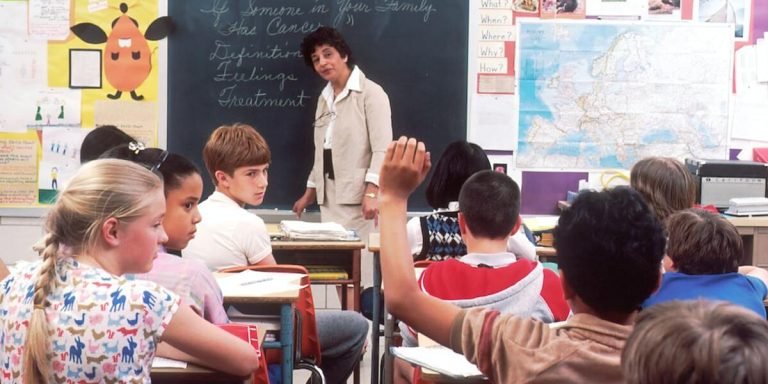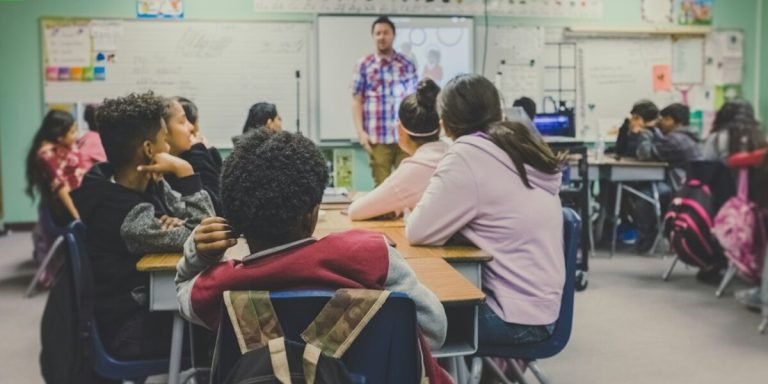Parent Educator: Navigating the Role Effectively in Early Childhood Development
The role of a “parent educator” is pivotal in early childhood development. It requires great adeptness as it involves molding the young minds that will become future leaders and contributors to society. The challenge, however, lies not only in their educational attainment but also equips them with values, skills, and attitudes necessary for life.
Becoming an effective parent educator calls for understanding child psychology, adopting appropriate teaching techniques suitable to different learning styles and engaging collaboratively with professional educators when needed. Understanding these insights can offer supportive pathways towards efficiently navigating this important phase of your child’s education journey while fostering healthy relationships along the way- making parenting more fulfilling than simply educating.
Did you know?
Did you know that, according to Harvard University’s Center on the Developing Child, early childhood represents the period when young brains develop most rapidly with about 1 million new neural connections formed every second? This underscores the critical role of parent educators in steering this phenomenal growth.
Establishing Effective Communication Between Parents and Educators
Navigating the landscape of modern education, parents and educators alike face unique challenges. One such challenge lies in establishing effective communication that fosters a cooperative environment for a child’s learning progress. This becomes more than just an exchange of words; it involves sharing insights, setting common goals, understanding expectations, and figuring out how best to equip our youngsters with relevant skills required in 2023.
The digital era has ushered us into times where technology integration in education is no longer optional but necessary. With traditional teaching methods evolving swiftly to incorporate tech-tools like online resources or interactive platforms —the gap between home-based learning environments and classroom settings are decreasing day by day. Parents wearing the hat of ‘parent-educators’, find themselves needing not only interest but also proficiency in these technologies to keep up.
Educators facilitate a smooth transition to virtual learning and maintain robust support systems for children and parents. Schools train parents on e-learning tools used in their child’s lessons. These tools include:
- Live virtual classes via video conferencing apps such as Zoom or Google Meet
- Educational software that offers immersive experiences to foster critical thinking
- Smart notebooks that promote organized note-taking practices
Maintaining persistent dialogue is key—educators should:
- Explain functionalities clearly
- Discuss potential concerns openly
- Troubleshoot problems together
This approach helps parents maneuver technological challenges, making homeschooling more manageable even with changing academic scenarios.
Developing a Collaborative Parent-Educator Partnership
Establishing effective communication between parents and educators is critical in today’s rapidly evolving educational landscape. As technology continues to integrate more prominently into education, the parent-educator partnership takes on added significance.
When developing a collaborative parent-educator partnership, it becomes vital for both parties involved to understand their roles deeply. The educator plays a significant part as an expert providing guidance about the child’s educational needs while leveraging modern technology tools. Simultaneously, the role of parents extends beyond mere participation; they must engage actively with teachers and contribute positively towards decision-making processes.
A central aspect of this collaboration involves sharing relevant information promptly. Newsletters or emails can be useful tools here but also consider using education-specific digital platforms designed explicitly for better school-to-home communication such as ClassDojo or Remind 101 App which see use in many schools worldwide.
Strategies for Enhancing Dialogue Around Student Development
Establishing fruitful communication between parents and educators has always been pivotal for a child’s educational journey. In the era of 2023, with technology being an integral part of education, certain strategies can aid in enhancing this dialogue focused on student development.
The first strategy involves utilizing applications and software designed to facilitate parent-educator conversations. It includes platforms that function as digital classrooms where teachers update about assignments or school activities, giving parents real-time information about their child’s progress.
Secondly, social media channels like Facebook groups or Twitter threads are often leveraged for seamless communication among stakeholders in education. Parents get involved by joining these online communities where they interact directly with educators while also engaging in discussions regarding curriculum advancements or other academic-based topics.
Virtual meetings through popular video conferencing tools such as Zoom have emerged as another effective tool promoting interactive dialogues around learners’ developments. These enable direct one-on-one sessions helping partners understand individual learning patterns better thereby focusing more effectively on areas needing improvement.
Fourthly, blogs serve both parties by sharing helpful resources and pedagogical insights guiding routine learning processes at home which complement classroom teachings.
Another promising trend is the use of mobile messaging apps whereby immediate queries from parents can be addressed promptly ensuring smooth continuity in the learner’s growth path without significant interruptions due to misunderstandings or lack of clarity.
The Role of Parent Educator Programs in Supporting Child Learning
In the ever-evolving educational landscape of 2023, Parent Educator Programs play a pivotal role in supporting child learning. With technology integration being an inseparable part of education today, parents are increasingly finding themselves playing dual roles – not just nurturing caregivers but also active educators helping their children navigate through digital tools and platforms.
Parent educator programs facilitate this new shift by empowering parents with knowledge and strategies to enhance their child’s learning experience at home. These programs create an ideal environment for children to connect what they learn on screen with real-life experiences, thereby bridging any perceived gaps between traditional teaching frameworks and modern e-learning methodologies.
Moreover, effective parent-educator engagement aids in creating well-rounded learners who aren’t merely academically proficient but also possess robust life skills. It is these shared efforts between school mentors and involved guardians that culminate into a supportive ecosystem encouraging every learner’s individuality while accommodating collective academic growth as well.
Key Components of Successful Parent Educator Initiatives
In addressing the pursuit of a successful education system, particular attention must be paid to parent educator programs. These initiatives are becoming increasingly critical in fostering effective learning environments for children. Here we delve into the key components that contribute to their success.
Firstly, there exists an undeniable need for training and skill enhancement among parent educators themselves. To ensure optimal results from these programs, it’s imperative they stay abreast with current educational methodologies and approaches utilized globally. This could involve regular workshops or seminars focusing on updated teaching strategies, child psychology, technology integration in education – all tailored towards 2023 standards.
Secondly comes communication – clear lines between parents, educators and learners strengthen understanding of individual needs while facilitating seamless flow of information crucial in this era’s fast-paced education landscape.
A third aspect pertains to consistent engagement which should be promoted at all levels; home-based exercises as homework assignments can serve dual purposes by not only extending classroom curriculum but also involving families intimately with their child’s academic trajectory.
Measuring the Impact of Parental Involvement on Educational Outcomes
Understanding the impact of parental involvement on educational outcomes is crucial in today’s digital age. The role of parent educators has evolved over time, with technology playing an increasingly significant part.
As a parent educator in 2023, you are not just responsible for providing traditional academic guidance but are also tasked with integrating relevant and helpful technological tools into children’s education. From myriads of e-learning platforms to interactive apps designed specifically for young learners – technology can bolster your child’s learning experience immensely.
Several key factors come into play when measuring the effects of tech-oriented parental participation on kids’ educational outcomes:
1) Improved communication: Technology facilitates seamless interaction between parents, students and teachers. Regular updates about assignments or class performances help parents stay informed and take proactive steps if needed. This enhanced communication often leads to better student performance.
2) Self-Paced Learning: With technology such as personalized online study materials or video tutorials that they can pause or replay at will; learners now have control over their pace of studying which helps cater to individual learning styles effectively; boosting overall understanding and retention rates.
3) Healthy screen habits: If incorporated sensibly by parent educators using set-time limits or breaks during online engagements ,educational technologies foster good digital behaviour amongst youngsters from early years themselves.
Navigating Challenges in the Parent-Educator Relationship
Navigating the challenges in a parent-educator relationship is fundamental to creating an environment conducive for children’s growth and learning. In this digital age of 2023, technology integration has transformed how we approach childhood education fundamentally. Parents and educators are both crucial stakeholders in a child’s educational journey; however, they often find themselves at odds due to differing perspectives or lack of mutual understanding.
The advent of various advanced teaching tools generates enormous opportunities but also poses significant challenges in achieving efficient cooperation between parents and teachers. On one hand, these new innovations have made it possible for information about students’ progress or setbacks to be instantly shared with their parents. On the other hand, rapid changes can be daunting as not all parents may understand the value or use certain technologies that educators employ day-to-day.
Productive relationships need open communication lines where expectations are clearly stated and understood by both parties involved through consultations from early on—an area where technology could play an instrumental role if properly harnessed. To maximize its potential while mitigating misunderstandings due to tech barriers would require continuous parent-educator collaborations like workshops focused on familiarizing with relevant technical skills & knowledge.
Communication platforms should offer comprehensive support beyond just reports regarding academic performance—they must facilitate feedback loops allowing constructive discussion around issues such as appropriate screen time limitations or suitable content screening methods—ultimately bridging gaps between home-based parental guidance & school-based formal instruction digitally empowered world of 2023 allows us.
Addressing Common Obstacles in Home-School Collaboration
The home-school collaboration in the education of a child is an incredibly significant aspect that often comes with its own set of challenges. As both educators and parents navigate this complex landscape, understanding these issues can help promote a smoother path to effective communication.
1. Communication Gap: The first issue usually stems from a lack of proper communication between parents and educators. Parents might not be completely aware of what goes on during school hours or have misconceptions about certain teaching methods adopted by schools today.
2. Differing Perspectives: Another common obstacle lies within differing viewpoints regarding childhood education progress metrics. This confusion can lead to disagreements about the performance rating systems implemented by educational institutions.
3.Non-Involvement Of Either Party: There are scenarios where either party may feel left out leading to one-sided decisions which could potentially impact children’s learning development negatively.
4.Technology Challenges – With 2023 seeing increased usage of digital tools for interactive learning, some parties struggle with technology integration in education due their limited familiarity or comfort level using advanced technological implements.
In order to address these obstacles effectively:
Start By Opening Channels Of Communication – Educators should provide regular updates on classroom activities while also taking initiative asking for parental input wherever required so as keep misunderstandings at bay thereby reinforcing mutual trust amongst each other.
Conflict Resolution Techniques for Healthy School-Family Dynamics
Navigating through the intricate dynamics of school-family relationships often requires a robust system for conflict resolution. With technology playing an increasingly vital role in the field of education, it has also become instrumental in fostering healthier communication and understanding between parents and educators.
One effective way to ensure fruitful parent-educator interactions is by harnessing digital platforms that promote open dialogue. In 2023, many schools have adopted cloud-based applications designed specifically for this purpose, making valuable information accessible at any time from anywhere. These resources enable real-time discussion about each student’s progress or concerns directly with their school personnel – no matter whether you are only miles away or across different continents.
Further integrating technology into these exchanges can aid significantly when conflicts arise. For instance, video conferencing software provides a more personalized touch than pure text conversations sometimes fail to convey—allowing emotions and intentions to be better understood.
Moreover, online scheduling tools offer great help too; they streamline meetings’ organization process among busy schedules ensuring that all parties get adequate attention without feeling rushed due to limited available timings on-site visitation might present.
Lastly but importantly: Learning Management Systems (LMS). An LMS allows teachers and administrators not only share curriculum updates timely but also report potential issues even before escalating into larger conflicts – giving both stakeholders ample opportunities proactively tackle them head-on collaboratively rather than reactively addressing later unintentionally worsening situation already was initially.
Conclusion
In summary, the role of a parent educator is not just pivotal but also dynamic in early childhood development. As we have seen throughout this piece, wearing multiple hats skillfully and efficiently brings about holistic growth for children – cognitively, emotionally and socially.
The journey as a parent educator might seem like an uphill task at times but remember that you are shaping future generations with your actions today. Don’t hesitate to glean more knowledge from our website where information on educating children is continually updated and expanded upon. We also provide all-round support especially tailored for both parents and educators alike who face challenges navigating their unique roles within child education.







